Émile Ntamack visited to the city of Fukuoka, the largest city in Kyushu area. There, he enjoyed local cuisine and visited some of the popular tourist spots, including Dazaifu Tenmangu Shrine.
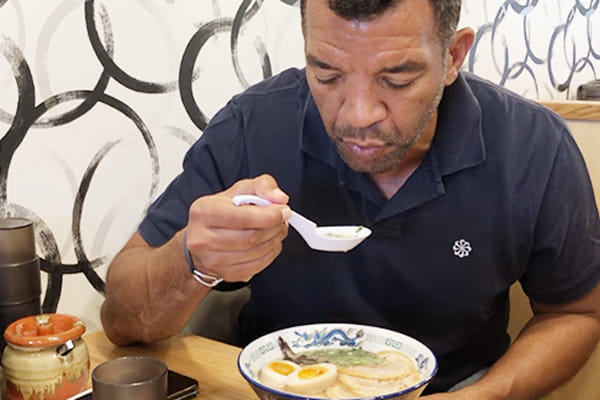
Trying Tonkotsu Ramen
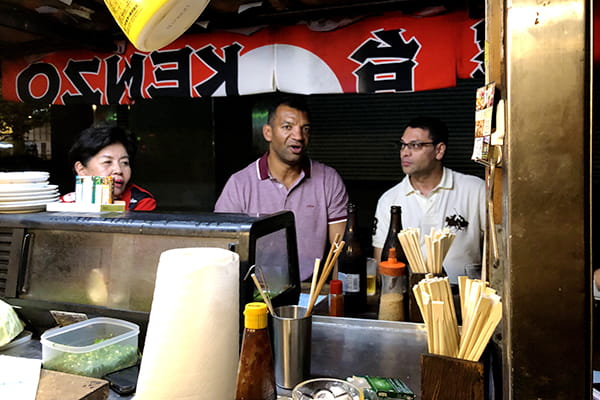
Dining at a yatai
If you come to Fukuoka, you can try a variety of foods. It’s a lot of fun to walk around and check out the famous food stalls in Hakata. Émile tried authentic wagyu (Japanese beef) skewers, and moved on to Nakasu Kawabata, a neighborhood brimming with historical significance. He enjoyed various foods at the local yatai (food stall) called Kenzo. He ate a full Fukuoka-style feast featuring motsunabe (hot pot of beef or pork intestines), yaki ramen (fried noodles), and yakitori (grilled chicken skewers).
Take a plane(About 2 hours).
Fukuoka City Subway Kuko Line(About 10 minutes).
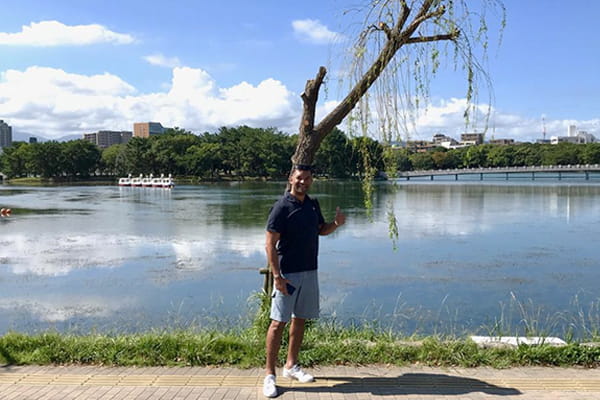
Ohori Park on a sunny day
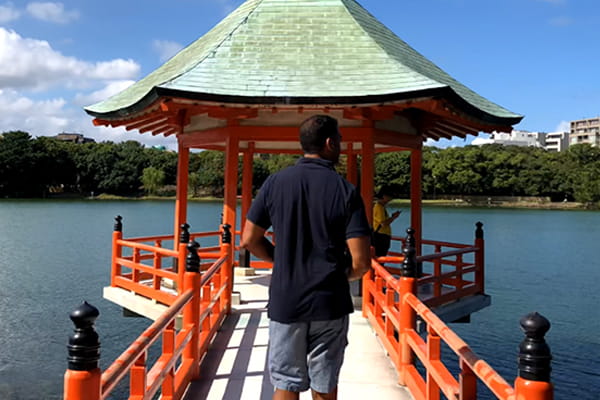
A symbolic building in Ohori Park
Ohori Park is so nice and relaxing, and the pond is beautiful—it’s a perfect spot where families can spend a day.—Émile Ntamack
If you’re traveling in Fukuoka and looking for a place to relax, you should visit Ohori Park. Especially nice on sunny days, visitors can take in the sights while walking the peaceful trail around a picturesque pond.
Fukuoka City Subway Kuko Line to Tōjinmachi Station. Take a walk (About 30minutes).
Fukuoka City Subway Kuko Line to Tōjinmachi Station. Take a walk (About 15 minutes).
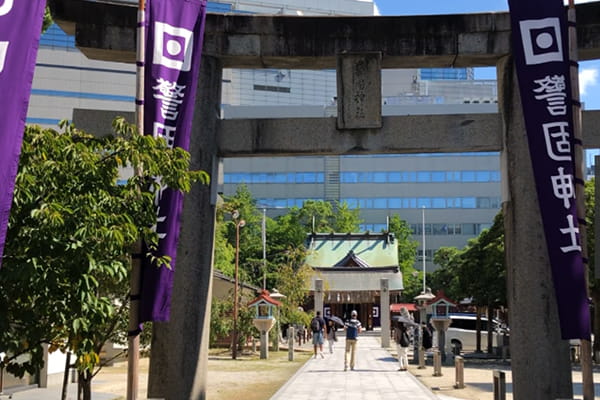
Kego Shrine, located downtown
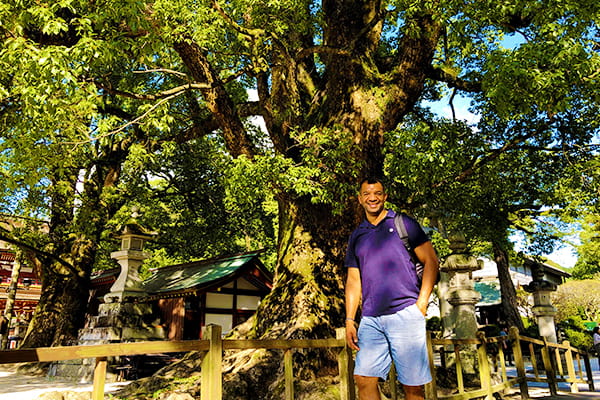
Émile poses at Dazaifu Tenmangu Shrine
Émile visited Kego Shrine and Dazaifu Tenmangu Shrine. Kego Shrine is where local lords used to worship, and has played a part in historical battles. Meanwhile, Dazaifu Tenmangu is one of the most important Tenmangu shrines (those dedicated to scholarship) in Japan. Of all the shrines that Émile visited, this one was his favorite.
Fukuoka City Subway Kuko Line to Tenjin Station. Take a walk (About 20 minutes).
Take a bus to Dazaifu Station. Take a walk (About 30 minutes).
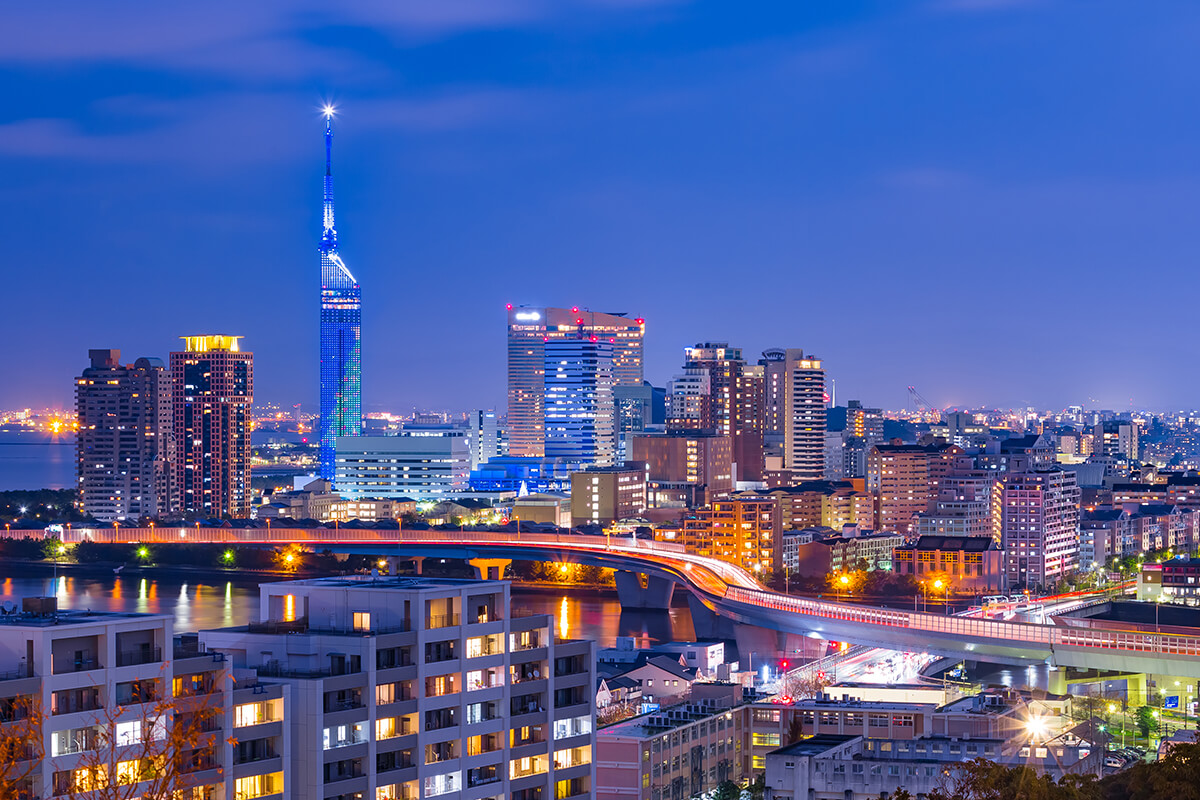
The largest city in Kyushu, Fukuoka Prefecture is one of Japan’s gateways to mainland Asia. It’s also the location of Shofukuji, the first Zen temple in Japan. If you’re there at the right time of year, you shouldn’t miss the Hakata Gion Yamakasa Festival, which sees teams race one-ton floats around the Hakata neighborhood.
Access from Tokyo by plane 1 h 35 mins ~
Access from Tokyo by bullet train 5 hours ~
This stadium is close to Fukuoka International Airport, and ringed by the forests. It also offers great views of on-field action.
- Fukuoka City Subway “Kuko Line” from Hakata Station to Fukuoka Kuko, change to shuttle bus: About 15 minutes.
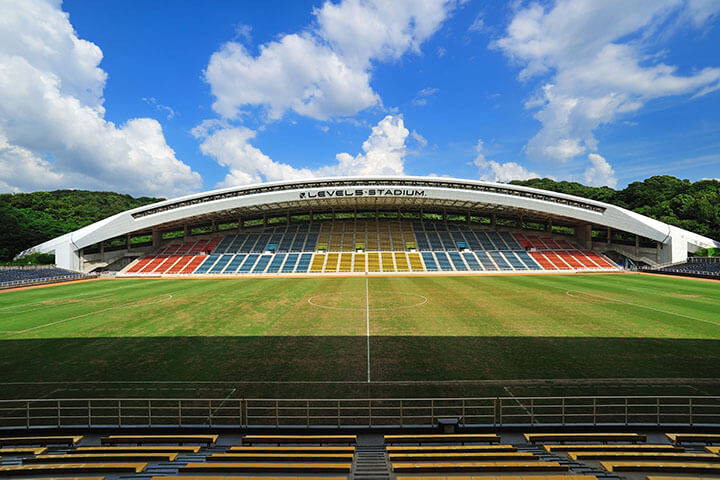

The largest city in Kyushu, Fukuoka Prefecture is one of Japan’s gateways to mainland Asia. It’s also the location of Shofukuji, the first Zen temple in Japan. If you’re there at the right time of year, you shouldn’t miss the Hakata Gion Yamakasa Festival, which sees teams race one-ton floats around the Hakata neighborhood.
Access from Tokyo by plane 1 h 35 mins ~
Access from Tokyo by bullet train 5 hours ~

This stadium is close to Fukuoka International Airport, and ringed by the forests. It also offers great views of on-field action.
- Fukuoka City Subway “Kuko Line” from Hakata Station to Fukuoka Kuko, change to shuttle bus: About 15 minutes.